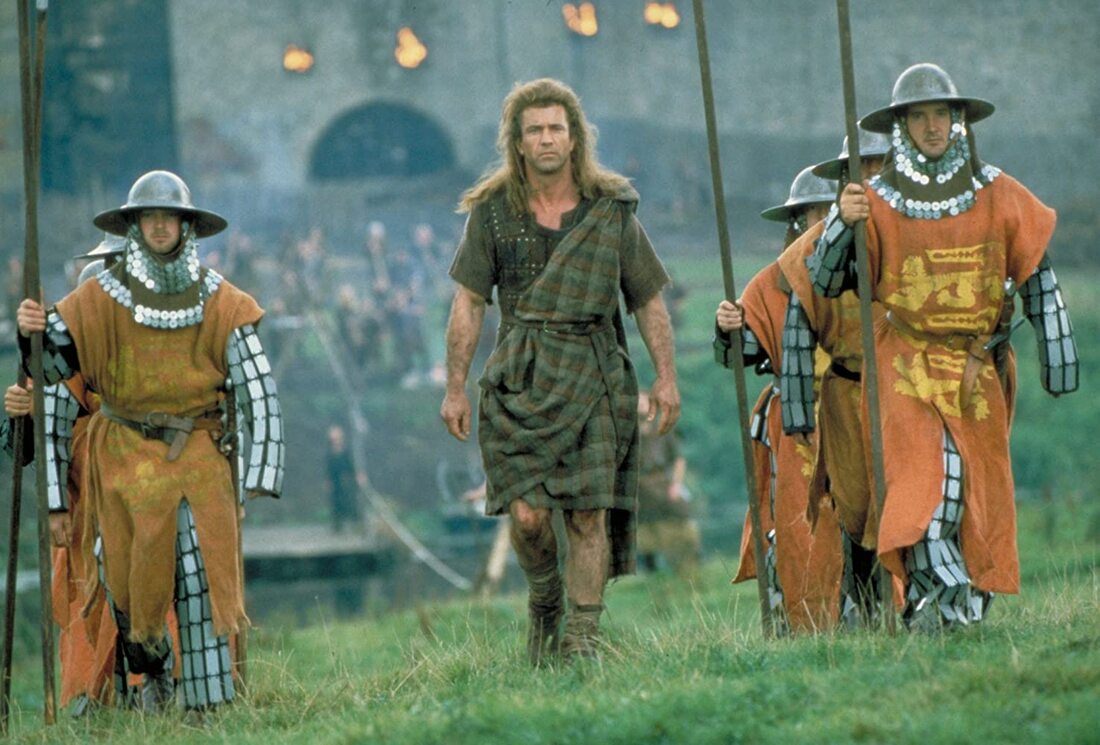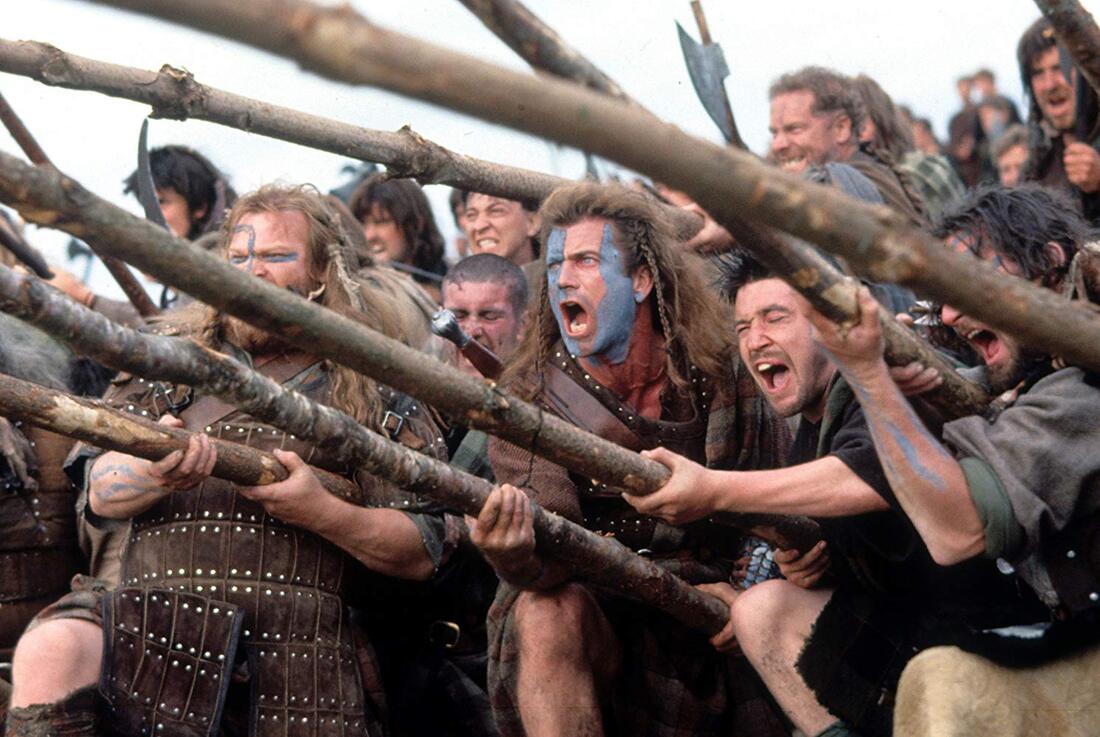|
By Dan Skip Allen Mel Gibson made his name in the 1980s with mainstream hits like the Lethal Weapon franchise and the Mad Max films. In the 1990s, he made the greatest film of his career when he chose to direct and star in Braveheart. Braveheart came out in 1995 and won Gibson his first and second Academy Awards for Best Picture and Director respectively. He would never reach such heights as a filmmaker or actor ever again. He would be ostracized from Hollywood after a drunken tirade, but would later be accepted again when he directed the WWII epic Hacksaw Ridge, albeit not to the same level. William Wallace (Mel Gibson) sees that his father and brother have died when they don't come home from war with England. After their funeral, his uncle Argyle Wallace (Brian Cox) comes to take him away from his home in the Scottish hills. Later he comes back home to be a farmer and ends up rekindling a friendship he had when he was a kid with a beautiful young woman, Murron (Catherine McCormack). This ends up getting him into a scuffle with English soldiers, which starts off a new war with England and King Edward I. William Wallace would end up becoming the leader of a Scottish revolution on the English rulers. This war would be a bloody violent war, and Gibson didn't hold back on the blood and gore in this epic. Historical movies can be sentimental, but inspiring. They usually have some good performances such as Daniel Day-Lewis in Lincoln, Russell Crowe in Gladiator, and Ben Kingsley in Gandhi. Rarely do you see a director/actor combination such as Braveheart. Dances With Wolves and Unforgiven come to mind as two of the only other exceptions. Both won Kevin Costner and Clint Eastwood the Academy Awards for their respective films. What elevates Braveheart to a different level is that it has a great performance from Mel Gibson that is arguably one of the greatest of all time. Famous quotes like "Aye, fight and you may die, run, and you'll live... at least a while. And dying in your beds, many years from now, would you be willin' to trade ALL the days, from this day to that, for one chance, just one chance, to come back here and tell our enemies that they may take away our lives, but they'll never take our freedom," are truly iconic. Along with the great performance from Mel Gibson, many other performances help rank this film among the greatest of all time. Sophie Marceau, Angus Macfadyen, Patrick McGoohan, James Cosmo, and Brendan Gleeson are all great. The epic battle scenes also make Braveheart one of the greatest war films as well as period piece films. There is not much CGI in Braveheart, but the beautiful hills of Scotland lend themselves to some breathtaking cinematography from Jon Toll.
As far as epics go, Braveheart is in the conversation as one of the greatest of all time. Spartacus, Ben-Hur, The Ten Commandments, and Gladiator are the ones I think of when great epics are brought up in conversation. Epics are like bigger than life films. Braveheart is the biggest of the big. It has a level that dwarfs almost every other film. Add in the great performance from Gibson and you have one for the ages. Remembering this film twenty-five years later brings back nostalgia on why it's such a great film. It stands the test of time. Even fifty or a hundred years from now, Braveheart will stand up as one of the greatest of all time.
0 Comments
Leave a Reply. |
The Snake HoleRetrospectives, opinion pieces, awards commentary, personal essays, and any other type of article that isn't a traditional review or interview. Archives
June 2024
Categories
All
|
|
|
disappointment media
Dedicated to unique and diverse perspectives on cinema! |


